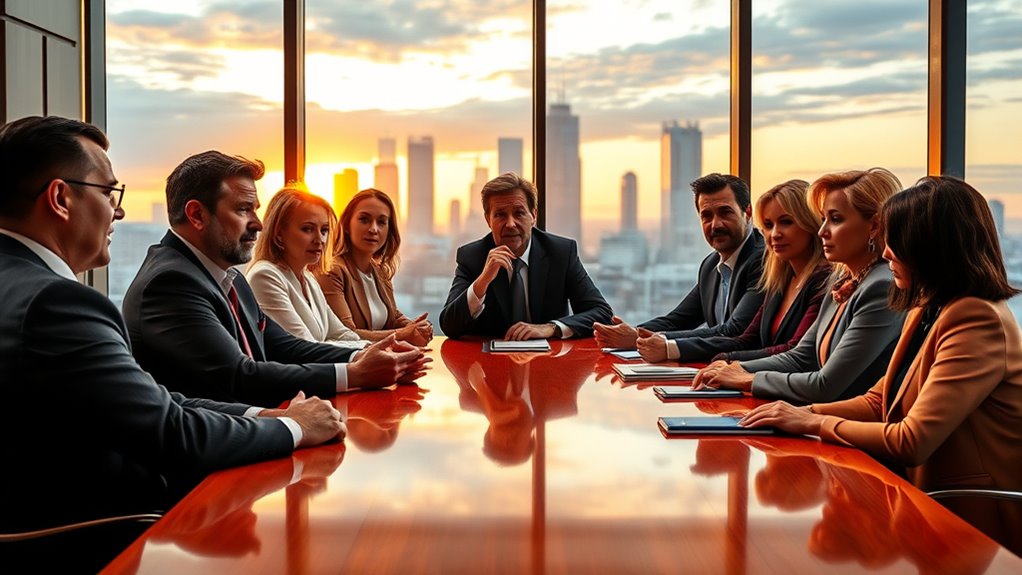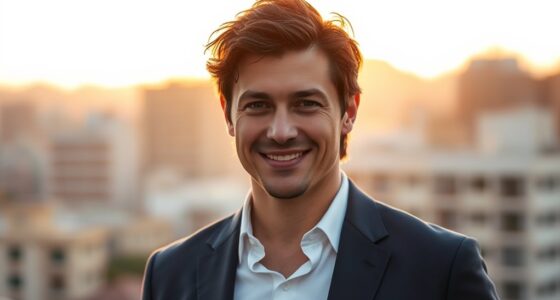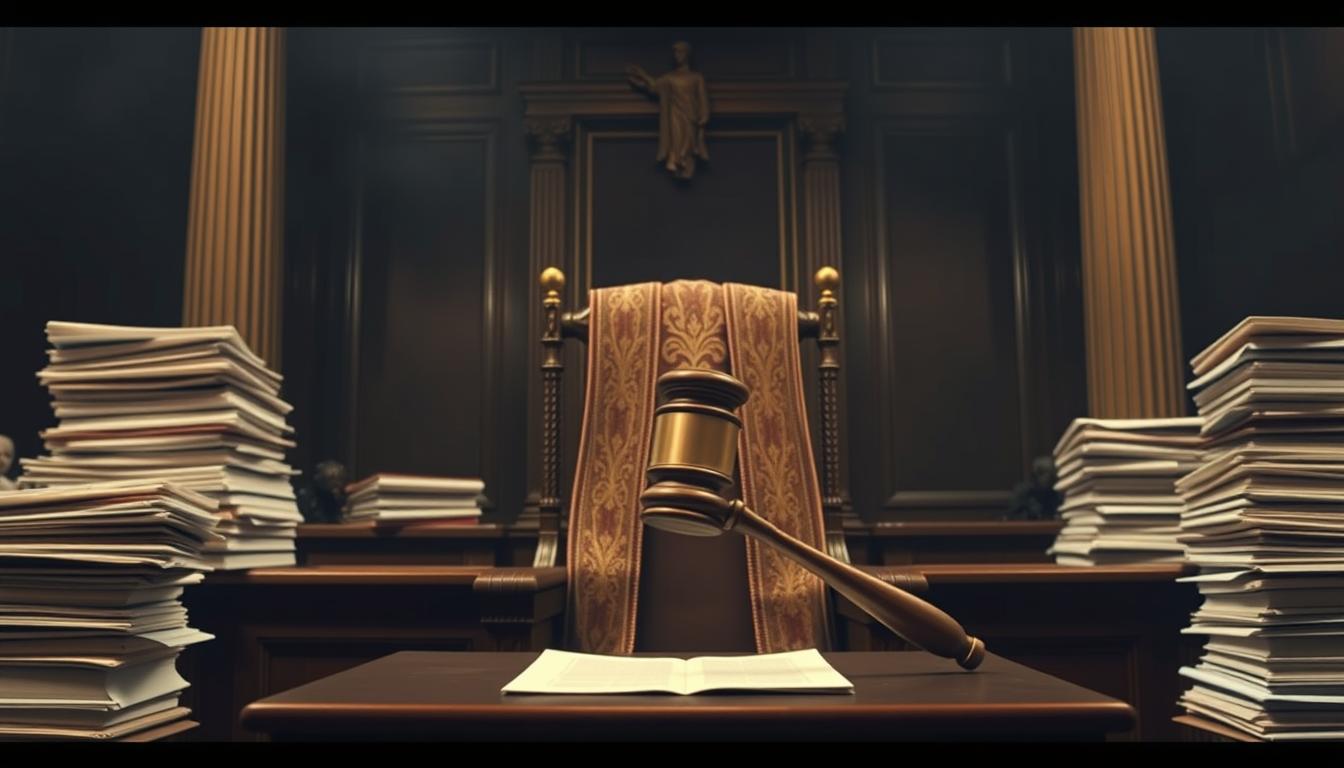In the 2025 Philippine elections, many celebrities are eyeing political office, from senators like Lito Lapid and Tito Sotto to social media personalities and entertainers like Willie Ong and Willie Revillame. Their fame helps them attract media attention and connect with voters. While some bring political experience, others rely on name recognition. If you keep exploring, you’ll discover how their involvement impacts the country’s political landscape and whether fame truly translates into votes.
Key Takeaways
- Several Filipino celebrities, including Lito Lapid and Tito Sotto, are vying for or considering political office in 2025.
- Celebrity candidates leverage fame, media presence, and prior public service to boost electoral prospects.
- Globally, celebrities like Kanye West and Stacey Dash have run for office, influencing public discourse despite limited wins.
- In the Philippines, celebrity involvement often increases voter turnout and media coverage, especially in local elections.
- Up to 11 of the 24 Senate seats may be filled by media personalities, highlighting fame’s significant political influence.

Celebrities have increasingly become active participants in politics, leveraging their fame to influence public policy and sway voters. As you observe the 2025 midterm elections in the Philippines, you’ll notice a significant number of well-known personalities vying for public office, especially in the Senate. Actor-politician Lito Lapid is seeking his third consecutive and sixth overall Senate term, demonstrating a sustained political presence. Former Senate President Tito Sotto plans to make a comeback after a failed vice-presidential run in 2022, while Bong Revilla runs under the administration slate associated with Lakas-CMD. Actor Phillip Salvador challenges incumbents once again, often backed by powerful political families like the Dutertes. Meanwhile, social media personality “Rastaman” Plaza, who was dismissed as a nuisance candidate in 2019, now aims for a Senate seat, reflecting how social media fame can be a springboard into politics.
Celebrities in politics include Lito Lapid, Tito Sotto, Bong Revilla, Phillip Salvador, and social media star Rastaman Plaza.
You’ll also see candidates with diverse platforms rooted in their backgrounds. Tito Sotto promises to promote government rightsizing and combat fake news, addressing issues that resonate with voters concerned about governance and misinformation. Willie Ong, a doctor and a social media personality, is running for Senate amid his battle with cancer, confidently asserting his capacity to serve. Willie Revillame, a TV host, campaigns independently with a focus on expanding senior citizen and PWD discounts, appealing to specific voter groups. Businessman-politician Chavit Singson, previously governor of Ilocos Sur, is also seeking a Senate seat, showcasing how political experience combined with celebrity status can be leveraged for electoral success. Many of these candidates have prior government experience or public service involvement, which they highlight to bolster their credibility.
Your attention is also drawn to the broader trend of celebrities entering politics globally. For example, Kanye West’s 2020 presidential bid in the U.S., with a platform on faith and social issues, garnered around 60,000 votes. Stacey Dash, an actress, briefly ran for a California congressional seat advocating conservative policies. These examples illustrate how celebrities use their platforms to engage in politics, sometimes with limited success but often with significant media impact.
In the Philippines, celebrity appeal plays a vital role. Name recognition helps candidates attract media coverage and mobilize voters, but critics question whether fame equates to competence. Success in politics often hinges on prior experience, campaign focus, and perceived sincerity. Beyond national offices, some celebrities run for local government or party-list seats, such as barangay captains or city councilors, leveraging social media and public service backgrounds to gain an advantage. Particularly in local elections, celebrities’ involvement often boosts voter turnout in their communities.
As you watch the 2025 elections unfold, it’s clear that media celebrities will continue shaping the political landscape. Up to 11 of the 24 Senate seats could go to media personalities, often aligned with political families or the current administration. Their visibility, fundraising, and ability to connect with voters make them formidable contenders, highlighting how fame increasingly influences political power in the Philippines.
[I am also aware that the Philippine political landscape continues to evolve, with celebrities often leveraging their popularity to gain political influence and enact change. This dynamic underscores the ongoing intersection between entertainment and politics in the country.Frequently Asked Questions
How Do Celebrities Prepare for a Political Campaign?
You prepare for a political campaign by building a relatable personal image, just like in entertainment branding. Focus on emotional, visual storytelling and connect with voters through public events and social media. Leverage media interest and endorsements to boost visibility. Tailor your messages for different audiences, especially youth and minorities. Use data to track engagement, adjust strategies, and encourage informed voting, making civic participation appealing and accessible.
What Challenges Do Celebrity Candidates Face in Elections?
You face many challenges in elections, especially with limited political experience and public skepticism about your qualifications. Media scrutiny and social media amplify both your strengths and weaknesses, making it hard to maintain privacy. You also need to build credibility, connect authentically with voters, and navigate complex party politics. Balancing your fame with serious policy discussions while managing criticism and polarized opinions makes campaigning even more demanding.
Have Any Celebrities Previously Held Political Office Successfully?
You’ll find that many celebrities have successfully held political office before. Ronald Reagan went from acting to becoming U.S. President. Shirley Temple Black served as a diplomat, while Ben Jones and Fred Grandy were elected to Congress. In the Philippines, Vilma Santos and Tito Sotto held significant political roles. Their fame helped them connect with voters, demonstrating that with charisma and dedication, celebrities can *shift* effectively into political leadership.
How Do Celebrities Influence Public Policy Debates?
You see, celebrities influence public policy debates by using their platforms to raise awareness and shape opinions. They actively engage through endorsements, social media activism, and appearances at key events, connecting emotionally with audiences. Their trusted voices, especially among younger voters, can mobilize public interest, boost civic participation, and even sway media coverage. This active involvement helps frame issues and influences how the public perceives policy discussions.
What Are the Potential Impacts of Celebrity Politicians on Democracy?
You should know that celebrity politicians can both challenge and support democracy. For example, one in ten Americans changes their views due to celebrity influence, showing their power. They can boost engagement and awareness but also risk prioritizing popularity over policy expertise. While they may inspire participation, their lack of experience can undermine democratic principles, making it vital to balance celebrity appeal with genuine governance.
Conclusion
As you imagine the bright spotlight shining on these stars turned politicians, you can almost hear the whispers of change echoing through the halls of power. Their presence sparks hope and anticipation, like dawn breaking over a new day. You feel the weight of history in the making, knowing that these familiar faces could shape the future. With every step they take toward office, you’re reminded that anyone, even a celebrity, can be part of a brighter tomorrow.









